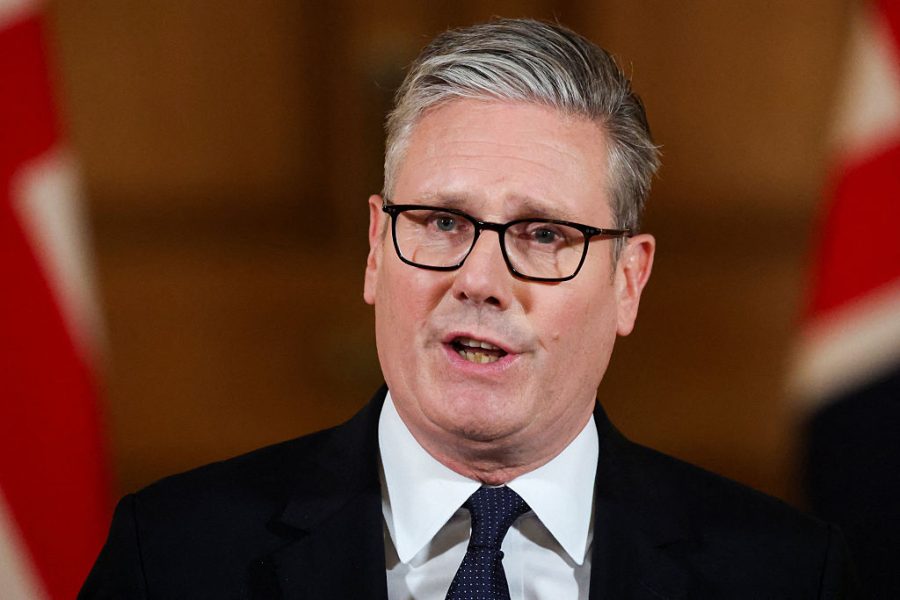Most of the people I deal with outside government agree that Darren Jones, whom Keir Starmer has just appointed as his chief secretary, is one of the most effective ministers in it. And both Tim Allan and Minouche Shafik bring to their new jobs as director of communications and chief economic adviser the authority and judgment that come from long experience in communications and economic policymaking. So Keir Starmer’s reorganisation of his No. 10 team has a good chance of improving his grip on the government machine.
But nobody in the Labour party should be under the illusion that the government’s woes are simply a result of dysfunction in Downing Street. That dysfunction was real and made everything worse. But the central problem of this government is a different and a much more fundamental one: nobody really knows what Keir Starmer wants to do.
Labour MPs need to embrace the Thatcher paradox
If, like Tony Blair, Starmer had been wafted into No. 10 on what would now be called a ‘vibe shift’ with Britain’s economy booming and the world at peace, he might have gotten away with being ‘policy light’. Like Blair in his first term, he could have focused on maintaining his poll lead by doing very little that was unpopular and giving the opposition no space to mount a challenge. It might easily have been enough for him to secure re-election as it did for Blair.
But that is not the world we are in. Keir Starmer was elected grudgingly by a small percentage of an electorate close to despair after 17 years of economic stagnation. A few months later, the re-election of President Trump upended the system of alliances and trading relations that underpinned Britain’s security and prosperity for the last 50 years. That and renewed Russian aggression mean that taxpayers will have to fork out a lot more for the nation’s defence than for the first time since the end of the Cold War. That will make them feel even poorer.
The economic and political circumstances of 2025 are much more like those of 1979 than 1997. Margaret Thatcher became prime minister during a prolonged crisis in which Britain’s survival as a major economic power was under threat and when the Soviet Union was a formidable and implacable foe. So it is her approach to power that Starmer should be learning from.
Thatcher’s approach involved deploying her parliamentary majority to implement a slew of difficult and unpopular reforms in the belief that after two to three years they would deliver results that would boost the popularity of the government in time for the next election. The strategy of ‘pain then gain’ worked and, with the help of victory in the Falklands war and a woeful leader of the opposition, she won re-election with an increased majority.
So the question everyone in Labour should be asking themselves is this: is the government using its majority to undertake the difficult long-term reforms that will, in three years’ time, deliver tangible results that voters will notice and reward?
So far there is little to show for it. The government deserves credit for its reforms to the planning rules that stifle investment in infrastructure and new homes. They should deliver a boost to business investment that will increase economic productivity and eventually flow through into people’s pay packets. But one Bill will not be enough to boost animal spirits and revive an economy. There is much more for them to do – and not much more than a year to do it in if it is to have any chance of bearing fruit before the next election.
First, the reform of planning rules needs to be followed up by a dramatic reduction in all of the other regulations that get in the way of both public and private investment in new homes, roads, wind farms, airports, railway lines and research labs.
Second, the successful achievement of much higher standards in the teaching of English and Maths in schools over the last two decades needs to be replicated in the teaching of technical skills in further education colleges. This will require the replacement of low-quality ‘all must have prizes’ vocational qualifications with rigorous T levels focused on giving young people qualifications which will ensure that they can still get well-paid jobs in the age of AI.
Third, having flunked their first attempt to reform the benefit system, the government cannot afford to give up. Even if they won’t deliver the short-term savings they hoped for, they must push ahead with the longer-term reforms that will ensure that young people suffering mental health problems are not incentivised to avoid work when every reputable therapist will tell you that the structure, self-esteem and social interaction of a job are key to mental wellbeing.
Labour MPs need to embrace the Thatcher paradox. It is by leaning in to difficult reforms, by grasping the painful nettles from which poll-driven crowd pleasers flinch, that they will deliver the fundamental changes that our country needs and in 2029 be rewarded. If they spend the next year trooping through the division lobbies humming the Millwall chant ‘No one likes us and we don’t care’, they will have a good chance of winning back the support that propelled them into office last July and a second term as a majority government. But if they think that they can afford to travel light and avoid big policy battles, electoral annihilation awaits.







Comments